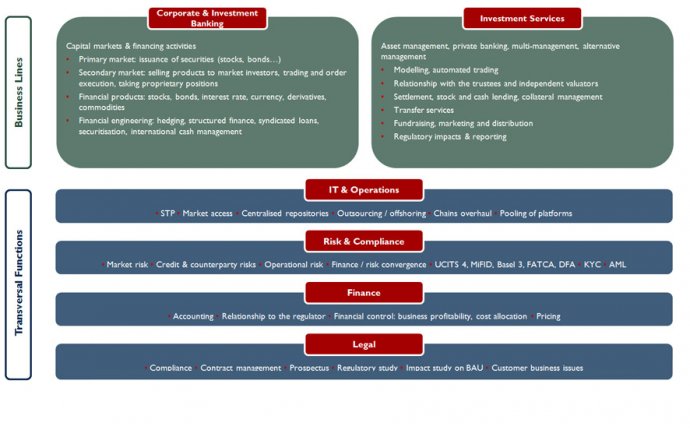
Investment Banking terms to know
 Banking is full of terms and concepts that can be difficult to comprehend. Even common ones have features that may not be obvious. But with banking and finance such an important part of our daily lives, taking the time to learn some new phrases — or understand old ones better — could yield profitable results.
Banking is full of terms and concepts that can be difficult to comprehend. Even common ones have features that may not be obvious. But with banking and finance such an important part of our daily lives, taking the time to learn some new phrases — or understand old ones better — could yield profitable results.
Starting with No. 10, here’s a countdown of 10 essential banking terms every consumer should know to get started:
10. Routing number
A nine-digit number that identifies your financial institution. Larger banks may have multiple routing numbers that are based on the geographic location where the account was opened.
9. FDIC
The Federal Deposit Insurance Corp. A government-run organization that insures customers’ bank deposits up to $250, 000 if the bank fails. The National Credit Union Administration is the equivalent for credit unions.
8. Certificate of deposit
Commonly known as a CD, an account into which you deposit a sum of money and agree to keep it there for a specified length of time. The account typically pays higher interest rates than standard savings and checking accounts.
7. APY
Annual percentage yield. The amount of interest you gain from keeping money in an account in a year, including compound interest.
6. APR
Annual percentage rate. The amount of interest you gain from keeping money in an account in a year, not including compound interest.
4. Savings account
Typically, an interest-bearing account used to hold money for short- or long-term goals or emergencies. You can add to this account at any time, but certain types of withdrawals may be limited to six per month.
3. Returned item fee
A bounced-check fee charged to the person trying to deposit the check. It can be charged if there are insufficient funds in the check writer’s account or if the account is closed.
2. Overdraft fee
A fee incurred when your checking account doesn’t have enough funds to cover a payment that is requested. The financial institution will pay what your account lacks, after which your account may have a negative balance.
1. Checking account
Banking may be awash in jargon, but understanding these 10 essential terms should help you navigate through it and steer your finances in the right direction.









